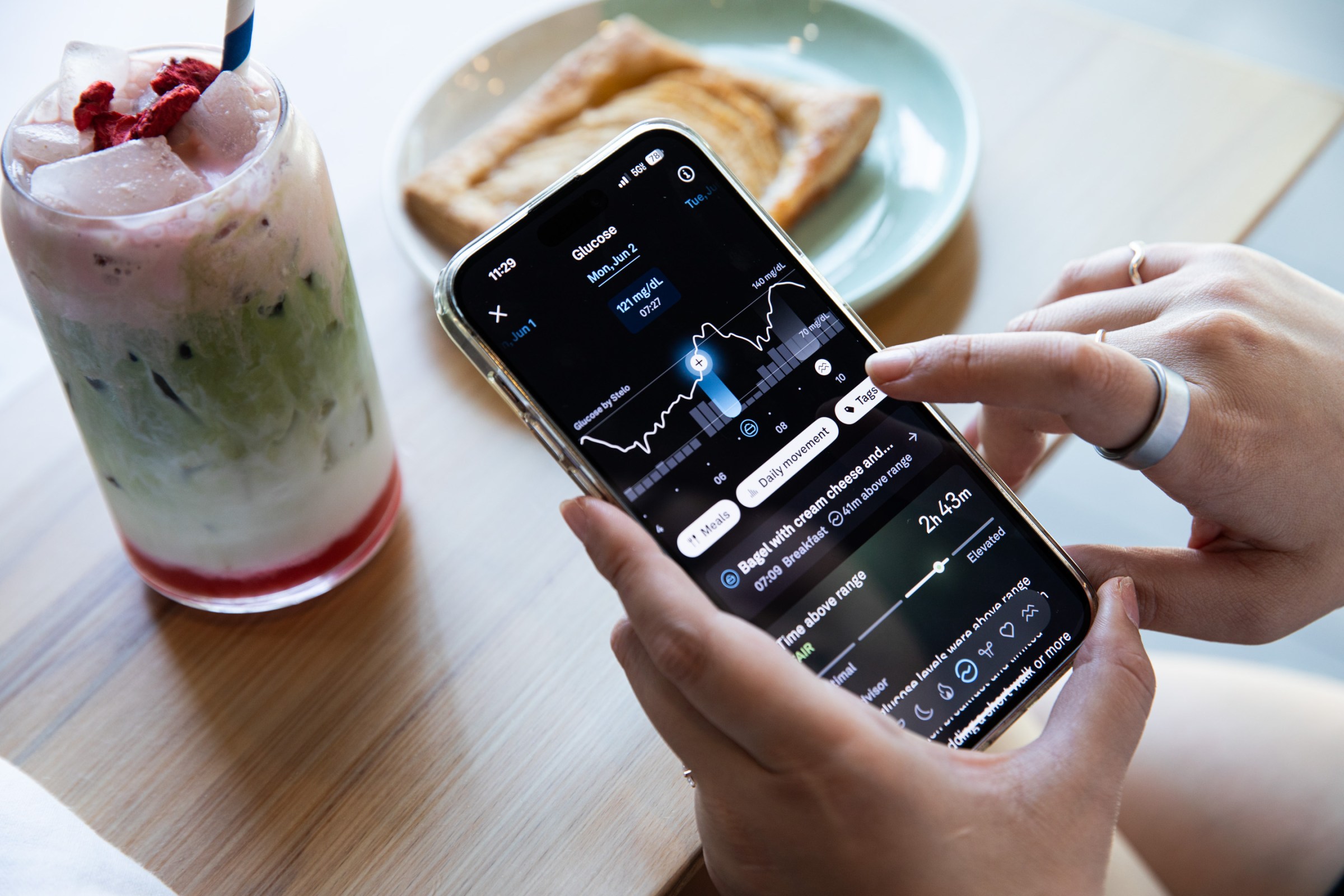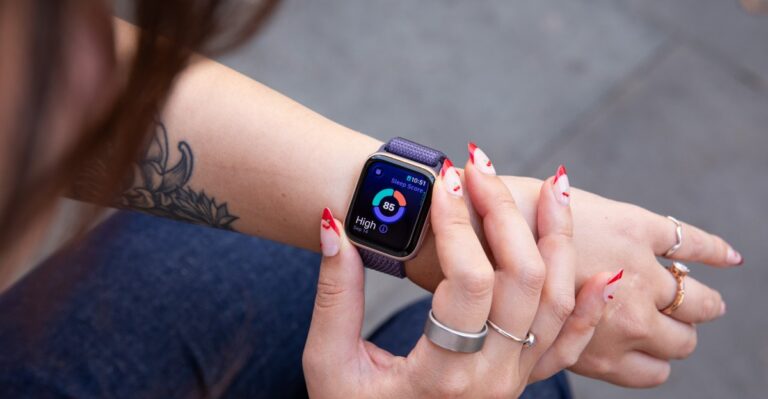This is Optimizer, a weekly newsletter sent every Friday from Verge senior reviewer Victoria Song that dissects and discusses the latest phones, smartwatches, apps, and other gizmos that swear they’re going to change your life. Optimizer arrives in our subscribers’ inboxes at 10AM ET. Opt in for Optimizer here.
I’ll be the first person to admit that fitness trackers can be helpful tools. But I’ve also written extensively about how they can unintentionally hurt your health. Streaks and oversimplified fitness gamification are often misguided, anxiety-inducing features. I’ll probably go blue in the face ranting about how wellness and medical features are not the same thing. Lately, I’ve been concerned with a phrase I keep hearing from consumers and company reps alike: “getting credit.”
After a hearty Fourth of July feast, my in-laws suggested a “family fart walk” to unleash our digestive demons. Given that our pants were about to split and there was still peach cobbler waiting in the fridge, the idea was enthusiastically received by all. But when we were out the door, my sister-in-law paused. Her Apple Watch was out of juice. “Damn,” she said, “Now I won’t get credit.” My eye twitched.
A few weeks later, at a Google Pixel Watch 4 briefing, I heard the phrase again. This year, Google expanded automatic activity tracking precisely because it received feedback that people “wanted credit” for workouts they had forgotten to track. And now that we’re in the thick of product launch season, I can’t stop hearing it. Of course, people want credit, I’m told. Workouts, naps, steps, heart rate accuracy, sleep stages — if it can be quantified, people want credit for it.
During the few months I was part of a run club, I heard many iterations of: If my Garmin doesn’t track it, it doesn’t count. If it’s not on Strava, did it actually happen?
I understand the impulse. Exercise sucks. Who doesn’t want a pat on the head for doing the Hard Thing? Trust me. I’ve turned heads in public for letting out a string of expletives whenever a smartwatch fails to correctly log a five-mile test run. Are you kidding me, I have to do it again?! What do you mean this walk didn’t contribute to closing my Exercise ring? Did the 45 minutes I spent ambulating around this godforsaken strip mall mean nothing to you, you overly expensive wrist brick? How dare this five-thousand-dollar smart mattress cover not give me credit for this luxurious afternoon nap as I attempt to fix this cross-country jet lag?
Seeing it all typed out, surely we can all recognize how ridiculous this sounds. Yes, it would be annoying if a smartwatch or fitness tracker repeatedly failed to accurately record your data. But fixating on that misses the bigger picture. Fitness trackers are tools meant to help you measure progress as you work toward health goals. But the only “tracker” that really matters is your body — and it never fails to record an activity.
Remembering that can be difficult, and that’s sort of by design. In recent years, fitness trackers have added scores to make disparate data points more digestible. Scores are easier to understand than seemingly random metrics. But psychologically, I’ve found they often trick my brain into thinking I’m back at school trying to pass a test. My workouts (and other metrics) become weekly homework assignments that I must do well on lest I fail. So when I don’t optimally manage my smartwatch’s battery before a workout, or if my Oura Ring doesn’t have enough juice for a night of sleep tracking, I find myself delaying a run or pushing off bedtime just so I can get credit.
Companies want their devices to be addictive. It means you’re more likely to stick with them. But if you’re not careful, you may find you’ve lost sight of the original goal — improving your health — in favor of chasing streaks and “getting credit.”
There’s nothing inherently wrong with feeling frustrated if you occasionally forget to log an exercise. But there is a thin line between helpful monitoring, and the obsessive, darker side of wearable tech. One study found that smartwatches sparked anxiety in atrial fibrillation patients, where one participant performed 916 EKGs over a 1-year period. In 2023, researchers put out a call for further empirical investigation into the health risks of wearable tech, including mental disorders and maladaptive health behaviors like overexercise, noting that “evidence of efficacy does not mean an absence of harm.” In recent years, there’s been an increasing number of reports delving into how using wearable tech can trigger health anxiety and paranoia.
This isn’t meant to be a finger-wagging lecture. I’ve yet to meet a fitness tracking devotee who hasn’t gotten a little too obsessed with metrics at one point or another. The trick is to notice this kind of thought and behavioral pattern as a warning sign that you may be developing obsessive tendencies. Once noticed, you can hit the reset button and redirect.

For example, whenever I find myself annoyed about “not getting credit,” it’s an immediate signal that I need to take a 24 to 72-hour wearable break without pausing my training schedule. That means — gasp — going on runs, walks, and other activities without tracking it digitally. It’s always an unpleasant feeling. I hate looking at my double watch tan lines. I feel naked. In the lead-up to a tracker-free workout, I often have to wrestle with feelings that I’ve “failed.” The irony is, I almost always enjoy these wearable-free workouts.
Facing that initial discomfort is the point. For me, it’s a regular reminder that the reason why I run isn’t to be faster, break PRs, or collect medals. I do it because it clears my head, helps me manage my anxiety, and is proof that I’m capable of doing hard things. After an unrecorded run, I’ve noticed that when I go back to my trackers, I stop apologizing for my “slowness” in Strava notes. I remember that no one who matters gives a damn what my average pace is.
If the cold turkey approach feels too aggressive, an analog activity log is a nice half-measure. When I take my wearable breaks, I jot down workouts in my Hobonichi Weeks journal. I don’t include much detail either — “30-minute run” or “lower body strength” is enough. It doesn’t completely silence my perfectionist brain gremlin, but it is a reminder that Strava kudos and metrics are secondary to showing up for myself.
Some of you may scoff because pfft, this isn’t a problem you’ve experienced. If that’s you, email me at [email protected] and teach me your ways. But for everyone else, I highly recommend taking a planned, 48 to 72-hour fitness tracking break every 90 days or so.
My last break was right after our family fart walk. My sister-in-law’s comment had struck a nerve. The next day, I let my in-laws persuade me into a bike ride even though I’m a public safety hazard when cycling. I can’t tell you how long that bike ride was or how far we went. I can tell you I enjoyed myself. I got zero credit for it.
Read the full article here
